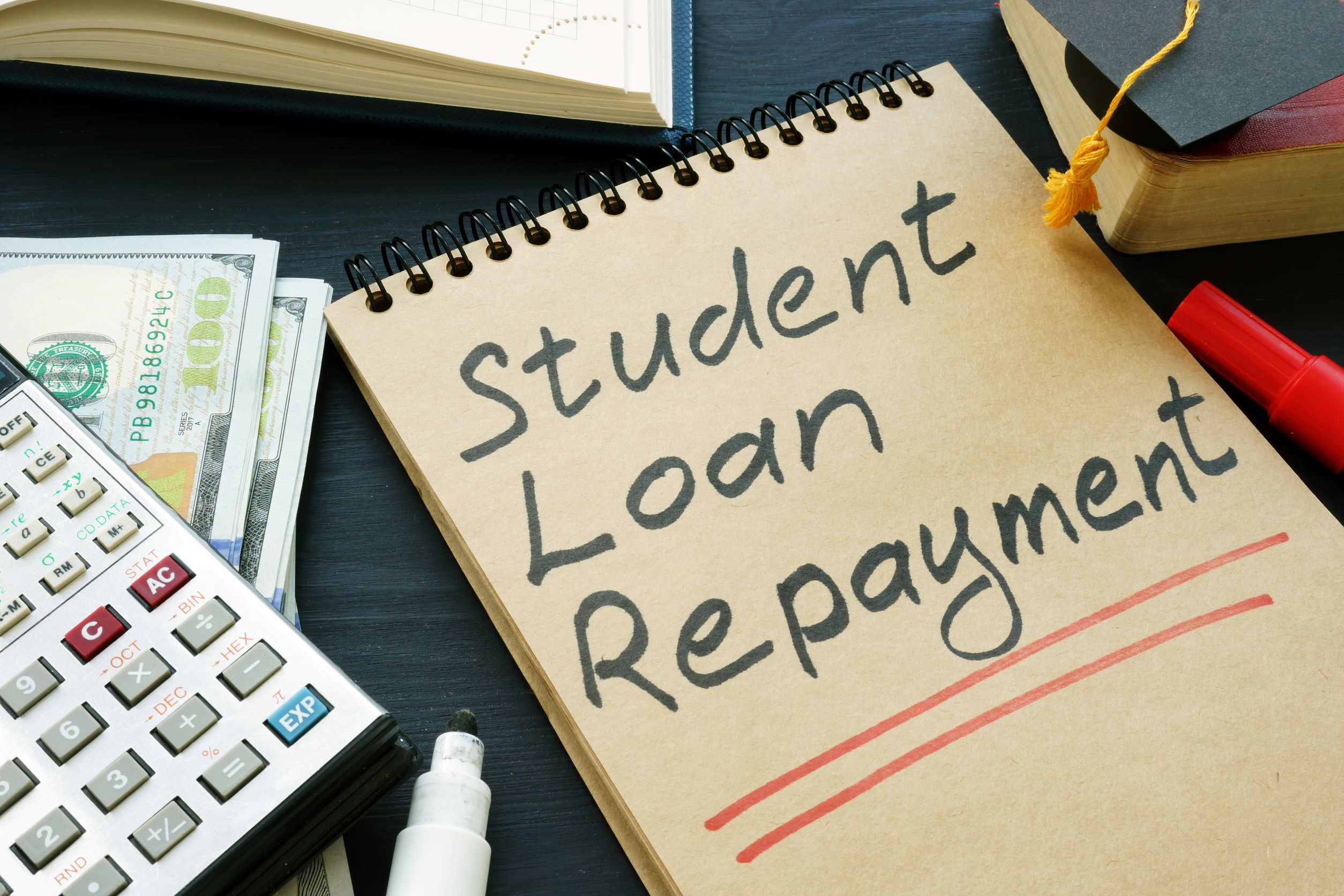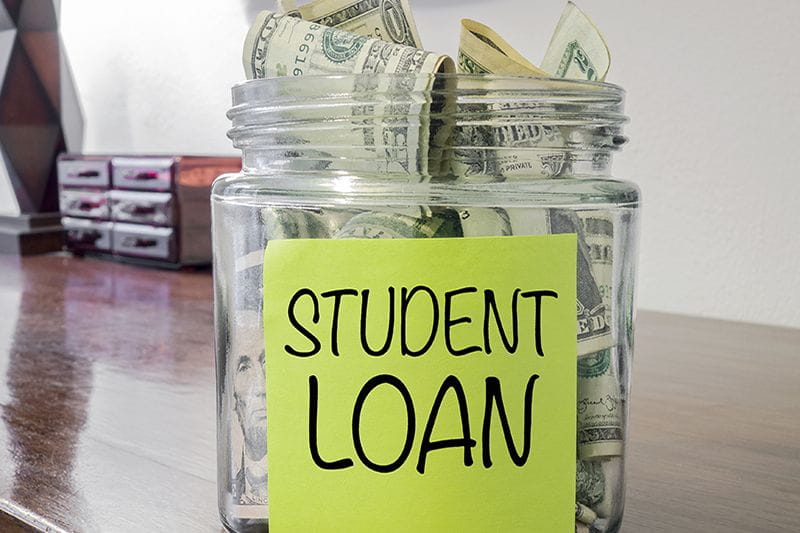Why You Should Schedule an Extra Student Loan Payment
The student loan is a well-known financial term. In this guide, we will briefly explain everything about student loans, but our focus will be on educating people about saving money and paying student loans wisely by scheduling an extra loan payment after paying the monthly charges.
A student loan is a fund to support the students financially during their education. Students can get this loan from the federal government or banks. This loan is not given for free, and the student will have to return it after completing the degree.
There are various plans with different terms and conditions. Choose a plan that suits you best, considering your financial situation.
While it's true that you can start paying student loans after completing the degree and starting a job, doing so is not the best option for you. Smart people start paying a small amount of money biweekly or monthly depending on their income, even if their loan plan does not force them to pay interest during the education period.
In fact, paying off your loan does not mean only adhering to paying the least amount of money each week. You can make extra payments specifically to pay your principal balance, and you will be surprised to know that you will not have to pay much interest when you graduate because a large chunk of your loan will already be off your shoulder.

Does paying extra on student loans lower monthly payments?
The answer may seem obvious, but it’s not always that simple. Here’s a closer look at how extra payments can affect your student loan repayment plan. Whether paying extra on your student loans will lower your monthly payment depends on the type of loan you have and the repayment plan you’re using:
- If you have a private student loan, paying extra may lower your monthly payment if you have a variable-rate loan.
- For a fixed-rate loan, paying extra will shorten the life of the loan but won’t lower your monthly payment.
- With a federal student loan, paying extra will lower your monthly payment as long as you’re not on an income-driven repayment plan.
- An income-driven repayment plan bases your monthly payment on a percentage of your income, so paying extra won’t lower your monthly payment. But it will shorten the life of the loan and save you money in interest over the life of the loan. If you’re struggling to make your monthly student loan payment, an income-driven repayment plan may be a good option.
To find out if paying extra on your student loan will lower your monthly payment, contact your loan servicer. They can help you understand your options and choose the right repayment plan for you.
Extra Student Loan Payment:
The student loan is composed of two parts: a principal amount (money that you have actually borrowed) and the interest you have to pay on that principal balance. Each month you have to pay a minimum amount decided by the lender to cover both the loan and interest.
Paying off loans is not easy, especially when you are already struggling to make both ends meet at the beginning of your career. But if you can understand the complexities involved in the interest cycle, you can save a lot of money while becoming debt-free faster. The best method to pay off your debt fast is by making extra payments as soon as you can, on a regular basis.
The main reason for that is the following. The interest accumulates daily, which means the amount you have to pay back keeps increasing, but you can cut the interest by making extra payments after reimbursing each month's required balance. Most of the money from the additional amount will go towards paying the principal money instead of interest. Extra payments will be burdensome for you, but they will pay off in the long run.
Let’s dig deeper into this example:
If you receive $20K as a student loan on 5% interest, you will have to pay $212 monthly for 10 years and $5440 as interest. But if you pay an extra $100 ($312) every month, you will save $2K in terms of interest.
Ensure that the extra amount you pay is regarded as a payment towards principal money and not as a payment for next month's balance. To make sure you can actually do it, contact your service provider and ask the proper method to make an extra payment. The lender might ask you to submit a written application, or their website might have an option that you can select, or you might be able to pay via check by writing the subject as "apply to principal."
Is paying extra an optimal option for you?
Paying extra is not for everyone because, as a student, it might not be possible for everyone, so it is an optimal solution for the people who can afford it. But I will still insist that even if life gets a bit harder for you, try to pay extra so that you can enjoy a debt-free future faster. Of course, pay within limits, not everything you have, so you become bankrupt.
You should consider paying extra if you get an opportunity to make a large one-time payment in your life. For example, if you receive a job bonus, a gift, money in inheritance, a tax refund, and pay raise.
Of course, if you win a lottery, you can pay all your debt at once, but it does not seem realistic, so focus on making small extra payments and pay your debt as fast as possible.
Lastly, if you want to save yourself from paying capitalized interest, you should consider paying extra. The capitalized interest keeps on adding like a snowball effect, making paying your loan very difficult. The interest is directly proportional to the principal balance. It means you will have to pay more interest if the principal amount is more and vice versa.
How do I pay less interest on student loans?
If you're like most college graduates, you're probably wondering how to pay off your student loans and save money on interest. Here are a few tips to help you do just that:
1. Make biweekly payments
One way to reduce the amount of interest you pay on your student loans is to make biweekly payments instead of monthly payments. By doing this, you'll end up making 26 half-payments throughout the year instead of 12 full payments. This can help reduce the amount of interest you pay over the life of your loan.
2. Pay down your principal balance
Another way to reduce the amount of interest you pay on your student loans is to pay down your principal balance. The interest you pay is based on the amount of money you borrow, so the less you borrowed, the less interest you'll have to pay. You can make an extra payment towards your student loan each month to help pay down your principal balance and save on interest.
3. Refinance your student loans
If you're looking for a way to save money on your student loans, you may want to consider refinancing. Refinancing your student loans can help you get a lower interest rate, which can save you money over the life of your loan. You may also be able to extend the term of your loan, which can lower your monthly payments. When you refinance your student loans, you'll want to make sure that you shop around and compare rates from multiple lenders.
4. Pay off your student loans early
If you have the ability to pay off your student loans early, you can save a significant amount of money on interest. The interest you pay is based on the length of time you have to repay your loan, so the shorter the repayment period, the less interest you'll pay. You can make extra payments towards your student loans each month to help pay them off faster.
5. Use a student loan calculator
A student loan calculator can help you estimate how much interest you'll pay over the life of your loan.

Consequences of Missing a Payment
Missing a regular monthly payment can make you a defaulter. For a federal loan, if you do not pay the installment for continuous 9 months, you will be counted as default. But for some private organizations, you can only miss one payment; otherwise, they might declare you a nonpayer.
Being declared a nonpayer will affect your credit score, and you might face difficulties in the future when you want to apply for a mortgage.
Understanding all these risks and choosing the best plan for yourself to make timely payments. Unfortunately, if you miss a payment, you can apply for loan consolidation to negotiate with your lender to pay a minimal amount for the time being, but this might cause interest to accumulate.
Conclusion:
Carefully select a student loan plan according to your financial needs and try to become debt-free as soon as you can by making extra payments while studying.
FAQ
Does paying extra have any effect on the interest?
Yes, paying extra will significantly reduce the amount of interest you will have to pay. Making principal-only payments (extra payments) will reduce your principal amount, so you have to pay less interest.
What amount should I pay monthly to repay the student loan?
It is more of a personal decision and varies from person to person, but you can generally assign 15 to 20% of your income to repay the student loan.
